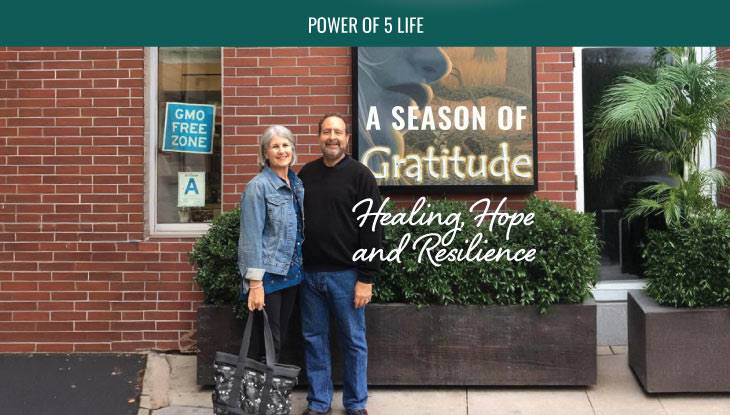February is Heart Health Awareness month. This is the month when I share and reinforce my thoughts about how we can take the best care of our hearts. Spoiler alert: it is all about prevention!
Be Proactive
We can all take a proactive approach by checking the fitness of our heart. First, perform a regular self-inventory of symptoms such as chest pain/pressure or increased shortness of breath with exertion. Second, maintain regular visits with a medical professional (more on that later). Third, follow my recommendations for key, well-established actions to prevent heart attacks (more on that to come).
The Obvious Factors to Avoid
The Power of 5 Formula provides important action steps that can lead us to the best possible heart health. Before detailing those, allow me to highlight several important and well-documented recommendations.
Anyone with a desire to live a long and healthy life cannot ignore these recommendations. Because it is taken for granted that these are common knowledge, these very important public health recommendations are not included in my Power of 5 Formula. They include the following:
- Not smoking
- Limiting alcohol intake
- Not driving while under the influence of alcohol or any other substance that can alter your level of consciousness or function
- Avoiding risky activities as we age, such as climbing on ladder and roofs
Each, in its own way, has serious detrimental health effects.
Your Heart Health Recommendations
- See your physician regularly to have a heart screen and screening for other diseases such as hypertension, diabetes, high cholesterol, and sleep apnea.
- Maintain regular visits to your physician if you have hypertension or high cholesterol.
- Take prescribed medications as directed. There are well-established medical trials for each condition mentioned above. These medications can further reduce risks of heart attacks if diet and weight loss are not effective in getting you to an established goal.
The Cause of Heart Attacks
Let’s get into the science of what happens with a heart attack so you have the knowledge to better prevent them.
- Blood vessels nourish the heart. But the cholesterol (fatty plaque) that lines the inside wall of those blood vessels can rupture. When plaque ruptures, it partially or completely blocks the flow of oxygen and nutrients to the heart. This causes death of muscle tissue, a myocardial infarction, aka heart attack.
- Advances in understanding heart attacks over the past twenty to thirty years have been phenomenal.
- We now know that the vulnerable/unsteady plaque (I just referred to) is a byproduct of a low-grade chronic and systemic inflammatory state in our bodies.
Scientists have been working on causes of this inflammatory state and its remedies. Some commercially manufactured medications partially address the underlying causes of the inflammation, but there are more holistic remedies.
There are 5 major contributors to the inflammatory state that we have control over. Making lifestyle adjustments is extremely beneficial for reducing chronic inflammation, the need for medication, and the risk for a myocardial infarction.
What Will It Take for Your Heart Health?
A commitment to a better lifestyle is what it takes. We can all be a little better. As my Peloton spinning instructor, Robin Arzon, told us in class this week, “Our capacity for change had no expiration date.” Wow, how empowering!
Here are my Power of 5 recommendations for reducing our risk for heart attacks and improving your heart health. Spoiler alert: they are the same for reducing our risk for dementia, improving longevity, and our best possible health.
- Reduce sweets. Sugar and hidden sugars in our foods lead to systemic inflammation. Fats and oil are harmful and cause weight gain. Here is an expression you may have heard, “fats go from our lips to our hips.”
- Reduce stress. Physical and psychological stresses result in increased cortisol level, a hormone that produces an inflammatory effect in our bodies and blood vessels.
- Increase Sweat. A minimum of 30 minutes of light to moderate exercise can offset systemic inflammation.
- Increase Sleep. Scientists have determined that inadequate duration and quality sleep is detrimental to our health. It also contributes to systemic inflammation and obesity.
- Increase Sex/Socialization/Connections. We now know how important social connections are in reducing the burden of inflammation in our body and vascular system. We have a better understanding of the reality of the expression that a person can die from a broken heart. The opposite of having connections and intimacy is loneliness. Since loneliness is a health hazard, we must find ways of connecting with others for their sake and for our own.
As I bring awareness to your heart health, I want to encourage you to absorb the list of 5 “S’s” that I have provided and begin making each of your “S’s” better.
To a Long and Healthy Life,
David Bernstein, MD



